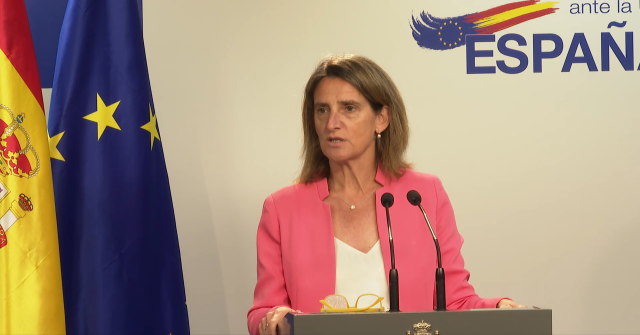
Everyone in Spain knows the intentions of the Spanish Government to make Teresa Ribera, current Minister for Ecological Transition and Demographic Challenge and candidate for the European elections next June, the Spanish Commissioner.
However, there are not few voices that have been raised against the rumors that Teresa Ribera will become European Commissioner. Although it is true that she has a very technical profile, in recent years, like the entire socialist Government of Pedro Sánchez, the ideological issue has been gaining strength for their policies. For this reason, the attitudes towards Ribera’s proposal are very different.
However, it is necessary to focus on the facts that have characterized Ribera during her more than five years as the head of the Ministry for Ecological Transition and the Demographic Challenge to understand the reason for the position of many of the groups that are and will be part of the European Parliament.
From the first days in which nuclear energy began to sound as a key point of the socialist legislature in Spain, Ribera has made clear her position and the lines that would guide her actions. The obstacles to nuclear energy seem to be the action that best summarizes and describes her actions in relation to this issue. No incentives, more pressure and, moreover, going so far as to state that “neither gas nor nuclear meet the criteria to be considered sustainable”. Anyone, therefore, could wonder what is going to happen with nuclear energy or gas, considered by the current Commission as sustainable technologies for the European Taxonomy, if Ribera arrives at the European Commission defending the same as she has defended from her position as Minister.
Uncertainty is being served in this aspect, although for the European Conservatives and Reformists Group, it is clear that without nuclear energy it is very difficult to maintain a scenario of low energy prices, as well as being aware that nuclear energy is fundamental to be able to carry out a strategy to effectively reduce emissions.
Another of Ribera’s actions was the fixing of natural gas prices, that is, the implementation of a cap on the price of gas, which was also endorsed by the European Commission, and which implies a certain controlling spirit more normal of a socialist ideology. One of the alternatives proposed, and which ECR supports, is the commitment to greater energy sovereignty and a fiscal plan for each Member State that considers the real needs of European citizens.
In a way, this type of actions taken by the minister and candidate to the European Parliament, are the ones that have made numerous groups that have shown their rejection to a possible incorporation of Ribera to the Commission. From Spain’s energy sector to national and international political groups.
Vox, the Spanish political party attached to the European Conservatives and Reformists Group, has expressed, throughout Ribera’s term as Minister for Ecological Transition and the Demographic Challenge, its opposition to the policies carried out by the same, as they claim they have gone against the concerns and needs not only of the energy industry sector in Spain, but also against the many circumstances of Spanish consumers.
The Spanish government is talking about a Commission vice-presidency that can encompass an ecological line and a line for the green transition, but also another line that can face the challenges that the economy faces in terms of sustainability.
However, this seems to be blurring in a scenario in which socialism is losing strength throughout Europe to the benefit of conservative positions that bet decisively on industry and the economy without ideological interference that do not solve problems, as well as the new composition of the European Parliament, which, according to all the polls, will have greater and decisive weight of groups such as the Conservatives and Reformists.



 Subscribe
Subscribe